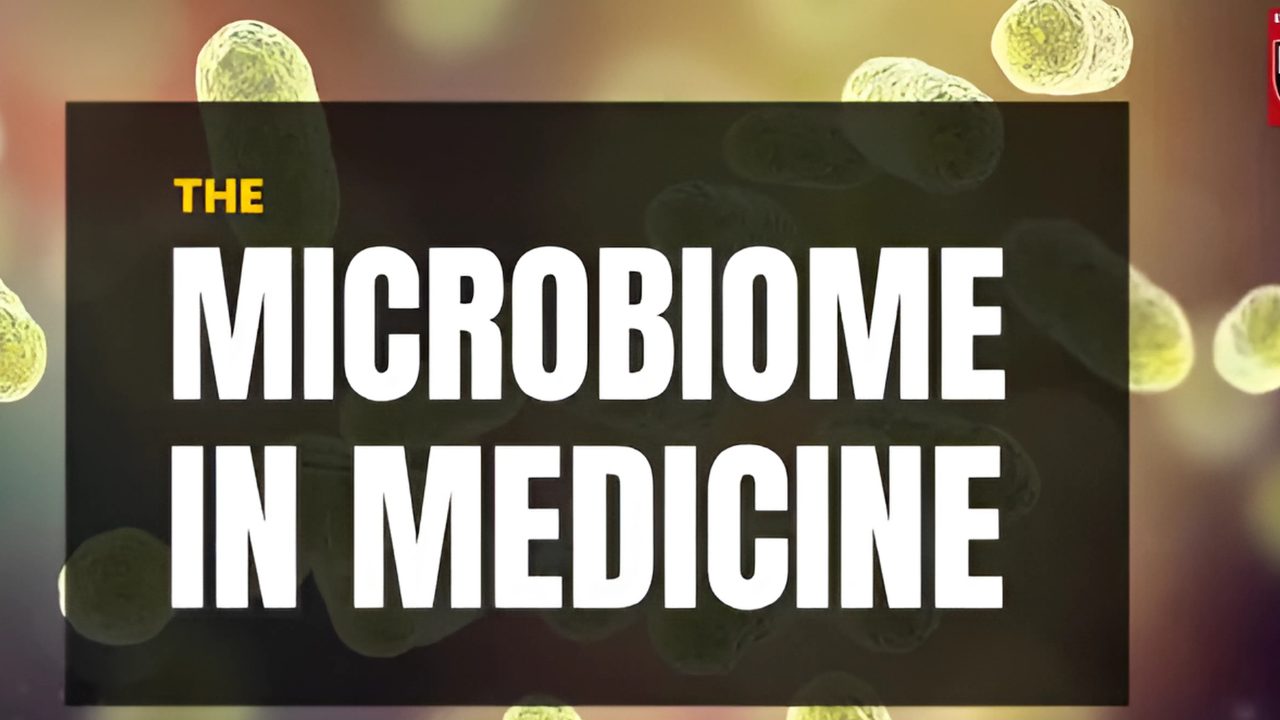
Post by : Shivana Rahim
The microbiome has emerged as a pivotal frontier in medicine, reshaping how we understand human health, disease, and therapeutic interventions. This complex community of trillions of microorganisms living in and on our bodies influences a wide array of biological functions, including metabolism, immune response, and even mental health. Recent advances in microbiome science have propelled its significance from a curious topic to a critical component of modern medicine, opening doors to innovative diagnostics, treatments, and personalized healthcare.
The microbiome refers to the collection of bacteria, viruses, fungi, and other microbes that inhabit various parts of the human body, most notably the gut microbiota. These microscopic organisms outnumber human cells and perform essential roles such as:
Degrading food components
Synthesizing vitamins and neurotransmitters
Modulating immune responses
Protecting against pathogens
Maintaining a balanced microbiome is crucial for health, while disruptions—commonly termed dysbiosis—are linked to diseases.
Research establishes strong correlations between microbiome alterations and numerous conditions, including:
Metabolic disorders like diabetes and obesity
Autoimmune diseases such as inflammatory bowel disease (IBD)
Neurodegenerative disorders including Parkinson’s and Alzheimer’s
Mental health issues such as depression and anxiety
Certain cancers and infectious diseases
This understanding has catalyzed efforts to manipulate the microbiome therapeutically, ranging from probiotics and prebiotics to more advanced interventions like fecal microbiota transplantation (FMT) and engineered microbial therapeutics.
Modern medicine employs multiple strategies to harness the microbiome for health benefits:
Untargeted interventions: These include probiotics, prebiotics, dietary alterations, antibiotics, and FMT, aiming to improve overall microbiome balance. FMT has proven especially effective in treating Clostridioides difficile infections, achieving high cure rates.
Targeted microbial therapies: Leveraging engineered microbes and synthetic biology, researchers develop customized bacteria that can perform specific functions — such as delivering drugs, modulating immune responses, or directly attacking tumor cells. For example, modified E. coli strains have shown promise in colon cancer therapy via tumor localization and toxin delivery.
The immune system and microbiome maintain a dynamic and mutually beneficial relationship. The microbiome educates the immune system to differentiate between harmless and harmful agents, preventing autoimmune reactions while promoting effective defenses.
Sleep, nutrition, and even mental health are influenced by microbiome-immune crosstalk. Disruptions in this balance can provoke chronic inflammation, increasing susceptibility to infections and diseases.
While promising, microbiome interventions face several obstacles:
Personalized variability in microbiome composition makes standardization difficult. What works for one person may not for another.
Safety and regulatory frameworks for treatments like FMT require refinement.
Expensive, complex technologies are needed for engineering microbes and comprehensive microbiome profiling.
Potential risks such as pathogen transfer and immune overactivation demand caution.
Despite these challenges, advances in multi-omics technologies, microbial bioengineering, and clinical trials continue to push the field forward, aiming for precision medicine approaches that adapt to individual microbiomes.
The rise of microbiome science heralds a new era in understanding human biology—not as a solitary organism but a complex ecosystem. This perspective offers transformative potential for:
Early disease detection through microbial biomarkers
Tailored nutrition and lifestyle interventions based on microbiome profiling
Novel therapeutics improving cancer treatment, autoimmune diseases, and infections
As research grows, integrating microbiome insights into routine clinical practice could redefine preventive and curative medicine.










Curry Powers Warriors to Nail-Biting 109-108 Victory Against Spurs
Stephen Curry's 49 points propel the Warriors to a dramatic 109-108 NBA Cup triumph over the Spurs,

India Advances to Semi-Finals After Thrashing USA in Women’s Blind T20 World Cup
India secured a dominant ten-wicket victory over the USA, advancing to the semi-finals in the Women’

South Africa's Early Advantage as India Struggles on Day Two
On Day Two, India reached 138-4 as South Africa took three early wickets, complicating matters with

Kenta Nishimoto Defeats Lakshya Sen in Japan Masters Semifinal
Lakshya Sen's journey in the Japan Masters ends after losing to Kenta Nishimoto 19-21, 21-14, 12-21

Kenta Nishimoto Defeats Lakshya Sen in Japan Masters Semifinals
Lakshya Sen's run at the Japan Masters concludes with a loss to Kenta Nishimoto in the semifinals, 1

Major IPL Trade: Jadeja Joins Royals as CSK Signs Samson
In a significant IPL trade, CSK has acquired Sanju Samson from Rajasthan Royals in exchange for Ravi